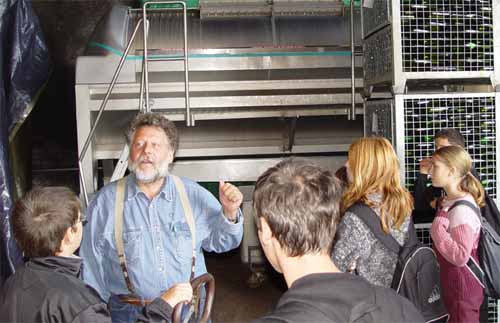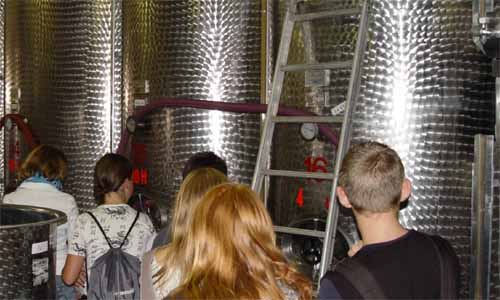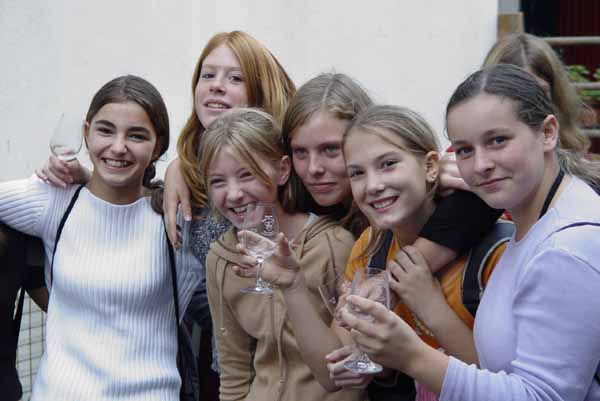|
|
||||||
|
||||||
|
|
||||||
|
|

|
Page 3 |
||||
|
||||||
|
After having learnt about the Vallée Noble wine region in this way, the college students had an opportunity to explore the estate's cellar. Standing in front of the pneumatic wine press, Seppi described the stages in the handling of the grapes after the harvest. While answering questions, he also explained what distinguishes Alsace wines from German ones, and gave his definition of a good wine: "One which meets the expectations of demanding wine drinkers by virtue of its subtle aromas and complexity, and also due to its being able to be savoured with pleasure both in its early years, when it reflects more than anything the nature of the grape type, and in its later years, when it expresses more clearly the character of the soil in which it was grown." |
|||||
|
|
||||||
|
While in his cellar, he also mentioned the crucial period in wine making when the wine maker has to be most vigilant and quick to react if a problem related to fermentation is noticed. For example, he needs very quickly to aerate a must affected by "bock" (a German term used to describe a disagreeable odour). |
|
|||||
|
Finally, in response to a request made many times by the students, he offered them a comparative tasting of grape juice and new wine. There is no doubt at all that they preferred the latter.
With their taste buds awakened by this nectar, and their curiosity satisfied by the information they had gathered, the college students continued their educational outing with a visit to the Alsace Ecomuseum at Ungersheim. |
||||||
|
|
||||||
|
|
||||||
|
|
||||||



